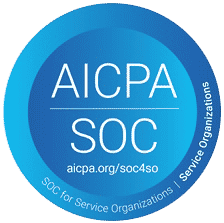Last month, Chicago officially approved the proposed Fair Workweek Ordinance. When the law takes effect on July 1, 2020, employers will be required to provide advance notice of employee work schedules and offer premium pay for any changes.
Here’s what Chicago employers need to know before auditing their current scheduling processes.
Impact of the Predictive Scheduling Law
Unlike the other predictive scheduling ordinances passed by major cities like NYC and San Francisco, the law will not be limited to the food service, retail, and hospitality industries. Chicago’s Fair Workweek Ordinance broadens the scope of responsibility, touching industries that have yet to be impacted by more stringent regulations.
Here are the major sectors that will be affected:
- Building Services
- Healthcare
- Hotels
- Manufacturing
- Restaurants
- Retail
- Warehouse Services
Only those with less than 100 employees globally will be exempt.
What Are the Obligations?
Employers who fall under these covered sectors must now:
- Provide an initial written estimate of work schedules and consider employee requests for changes
- Give advance notice of work schedules and schedule changes
- Pay employees for particular schedule changes
- Allow employees to decline any additional work hours offered
Initial Written Estimate
This is a good-faith estimate that must be given to employees no later than their start date. The goal is to provide transparency over work expectations and time commitments.
Employers must include (a) the average number of weekly hours the employee can expect to work, (b) days and times (or shifts) which the employee can expect to work, and (c) whether the employee can expect to work any on-call shifts.
Employees have the right to request a modification of the initial estimate, and employers are required to consider all requests; they have 3 days to provide the requesting employee a written notice of the approval or denial.
Advance Notice
Employers must provide the work schedule for all employees at a given facility at least 10 days prior to the first day in the new schedule. This timeframe will increase to 14 days—a full two weeks—on July 1, 2022.
Premium Pay
Any changes made by an employer after the 10-day notice deadline comes at a price. Changes are defined as adding work, changing the date/time of a shift (even if the employee doesn’t suffer loss of hours), or cancelling a shift, or reducing a shift’s hours.
If changes occur with more than 24 hours’ notice, the employer must pay the affected employee(s) one hour of “predictability pay” at their regular rate, in addition to the employee’s regular wages earned for the shift.
If such changes occur with less than 24 hours’ notice (including while an employee is working), the employer must pay the affected employee(s) at least 50% of their regular rate for all affected work hours, in addition to their full wages earned for the time actually worked.
Right To Decline
Covered employees have a right to decline any additional hours of work offered after the 10-day notice deadline, as well as a right to decline any shift scheduled within 10 hours after the end of the previous day’s shift. If an employee chooses to work a shift within 10 hours, the employer must pay that employee at a rate of 1.25 times the employee’s regular rate of pay for that shift.
The Scheduling Implications
Predictive scheduling laws were designed to give workers less uncertainty over their schedules. They were also designed to curb an employer’s rampant overscheduling and on-call practices that can hinder an hourly employee’s work/life balance.
Chicago employers across many sectors will now need to accurately project their demand needs before creating a shift roster… or pay the price. For the first time ever, volatile environments like manufacturing that depend on overtime and last-minute call-ins will be held accountable as well.
To save money and stay in compliance in 2020, covered employers in Chicago need to start investing in automated employee scheduling now. That way, real-time labor demands are taken into account at the point of scheduling. These analytics will ensure that you will be staffed to match only what you need.
You can not only develop schedules in advance (and in minutes), but you can do so while determining employee availability, allowing adequate rest time between shifts, and maintaining all the other operational rules you need to keep compliant.
Are your schedulers currently employing on-call practices? Are they making changes to the roster and calling people off the day before their shift is supposed to start? Are your hourly employees coming to the facility, only for some to be dismissed an hour later due to overstaffing?
Then it’s time to consider a change.
The Indeavor Solution
Indeavor’s solution offers clients an end-to-end, cloud-based employee scheduling and absence management system. By integrating with your human capital management and enterprise resource planning systems, you can leverage a robust platform that provides you with real-time employee data.
Click here to request a demo.







